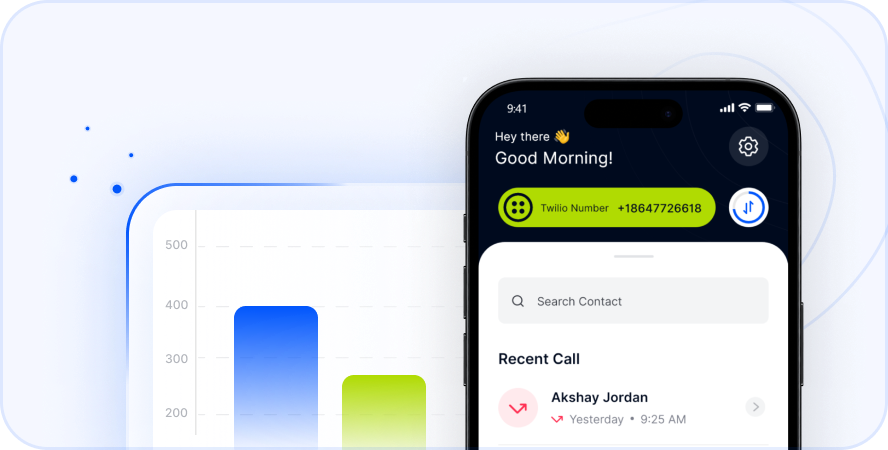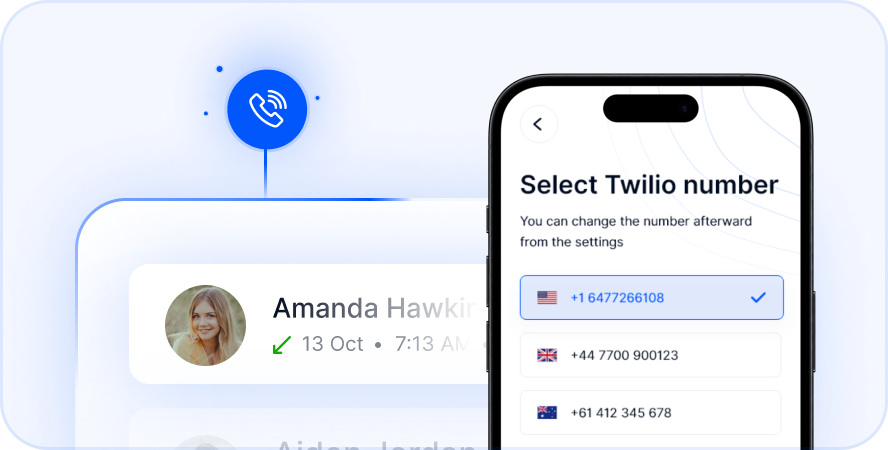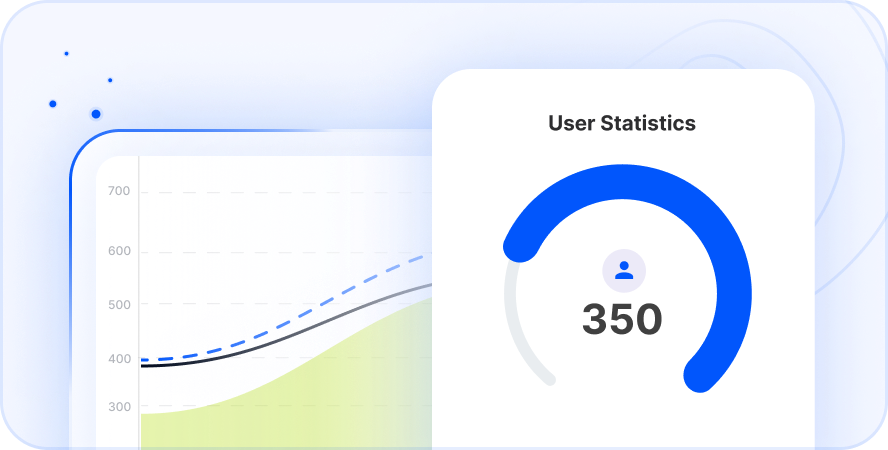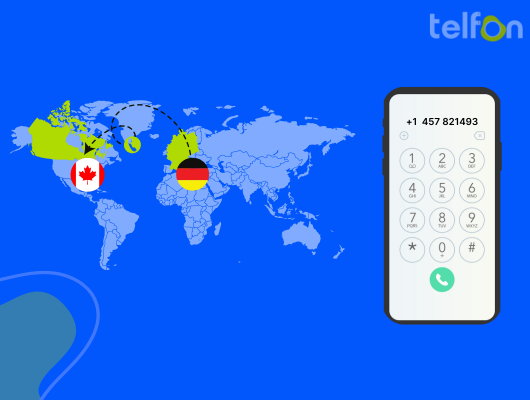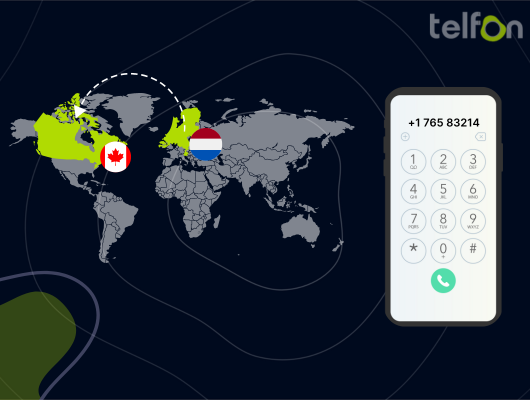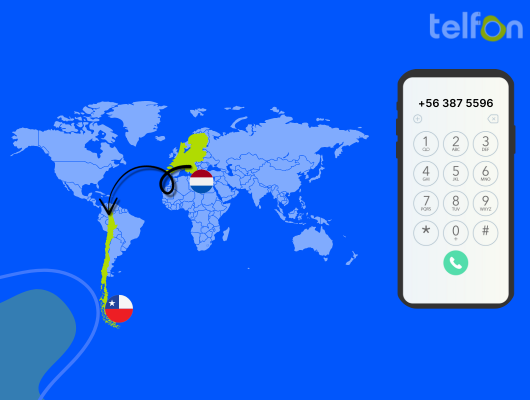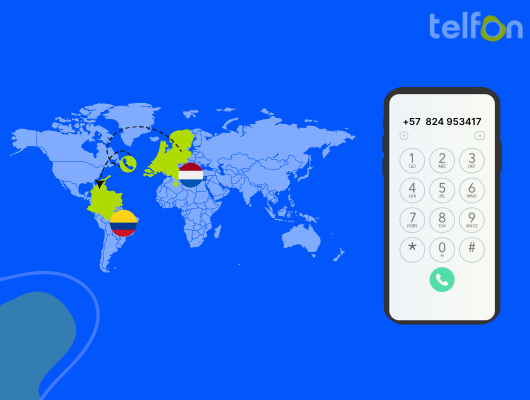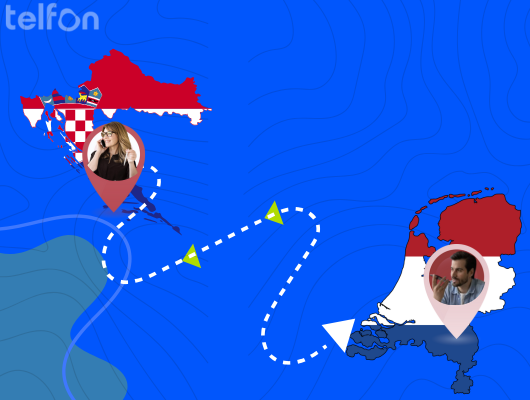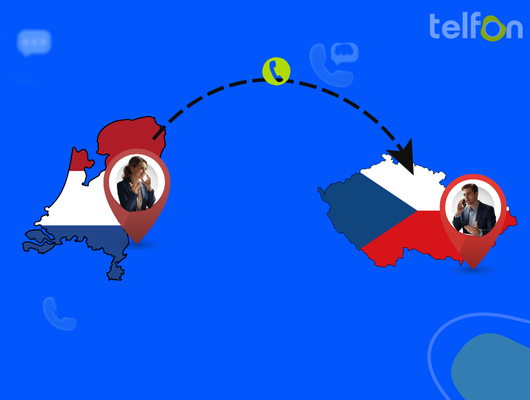Connecting with friends, family, or business partners across continents has become easier than ever. If you’re in Germany and need to call Canada from Germany, you might wonder about the best approach. Different methods exist, each with its own steps and costs. This comprehensive guide will walk you through everything you need to know, from dialing codes to cost-saving tips and how modern solutions like Telfon can make your international calls seamless.
Whether you’re planning a trip, managing business operations, or simply catching up with loved ones, understanding the process of calling Canada from Germany is crucial. We’ll cover traditional landline and mobile methods, explain how phone numbers are structured in Canada, and help you find the optimal time to call. You can also refer to a global time zone converter for real-time comparisons to ensure you call at a convenient hour for the recipient.
Before You Call: Essential Information
Before you dial, knowing a few key details makes the process much smoother. This preparation prevents common errors and ensures your call connects successfully.
Understanding International Dialing Codes
Every international call requires specific codes to direct your call across borders. Think of these as postal codes for your phone call, telling the network where to send it.
- Germany’s Exit Code (International Access Code): To make an international call from Germany, you first dial
00. This tells your phone provider you are calling outside Germany. - Canada’s Country Code: Canada shares its country code with the United States and other North American countries, which is
1. This code directs your call to Canada.
So, when considering the Germany to Canada dial code, it’s a combination of Germany’s exit code and Canada’s country code. You will always start your dialing sequence with 001.
Navigating Time Zone Differences
Canada is a vast country, spanning six primary time zones from east to west. Germany operates on Central European Time (CET) or Central European Summer Time (CEST), which is typically UTC+1 or UTC+2. This means significant time differences exist between Germany and various Canadian cities.
Here’s a quick look at the typical time differences, keeping in mind that Canada also observes Daylight Saving Time, which can shift these by an hour:
| Canadian Time Zone | Major Cities | Standard Time Offset from UTC | Typical Offset from Germany (CET/CEST) |
|---|---|---|---|
| Newfoundland Standard | St. John’s | UTC-3:30 | 4.5 or 5.5 hours behind |
| Atlantic Standard | Halifax, Moncton | UTC-4 | 5 or 6 hours behind |
| Eastern Standard | Toronto, Montreal, Ottawa | UTC-5 | 6 or 7 hours behind |
| Central Standard | Winnipeg, Regina | UTC-6 | 7 or 8 hours behind |
| Mountain Standard | Calgary, Edmonton | UTC-7 | 8 or 9 hours behind |
| Pacific Standard | Vancouver | UTC-8 | 9 or 10 hours behind |
Always double-check the current time in the specific Canadian city you plan to call. This ensures you avoid calling too early in the morning or too late at night. For example, if it’s 3 PM in Berlin, it might be 9 AM in Toronto, a perfect time for a business call. However, it would be 6 AM in Vancouver, which is too early for most calls.
How to Call Canada from Germany: Step-by-Step Guide
The process for calling Canada from Germany varies slightly depending on whether you use a landline or a mobile phone. Understanding these differences helps you make the call correctly the first time.
Calling from a Landline
Using a landline is a traditional and reliable way to make international calls. Here are the steps:
- Dial Germany’s International Exit Code: Start by dialing
00. This tells your German landline provider that you are making an international call. - Enter Canada’s Country Code: Next, dial
1. This is Canada’s country code. - Input the Canadian Area Code: After the country code, dial the three-digit area code for the specific region in Canada you are calling. For example,
416for Toronto or604for Vancouver. - Dial the Local Phone Number: Finally, enter the seven-digit local phone number.
Example Landline Dialing Sequence:
To call a Toronto number (416-555-1234) from Germany:
00 (Germany Exit Code) + 1 (Canada Country Code) + 416 (Toronto Area Code) + 5551234 (Local Number)
Your full dialing sequence would be: 00-1-416-555-1234
Calling from a Mobile Phone
Calling from a mobile phone offers more flexibility, especially with the convenience of the ‘+’ symbol.
- Use the Plus Sign (+): Instead of dialing
00, you can simply dial+. The+sign is a universal international access code for mobile phones worldwide. It automatically replaces your country’s exit code. - Enter Canada’s Country Code: Follow the
+with1, Canada’s country code. - Input the Canadian Area Code: Dial the three-digit area code for the Canadian region.
- Dial the Local Phone Number: Complete the sequence with the seven-digit local phone number.
Example Mobile Dialing Sequence:
To call a Vancouver number (604-555-4321) from Germany using a mobile:
+ (International Access) + 1 (Canada Country Code) + 604 (Vancouver Area Code) + 5554321 (Local Number)
Your full dialing sequence would be: +1-604-555-4321
Using the + sign on your mobile phone is generally recommended. It makes dialing simpler and is less prone to errors when you are unsure of the specific exit code for a country.
Decoding Canadian Phone Numbers
Canadian phone numbers follow a consistent format, similar to those in the United States. Understanding this structure helps you dial correctly and avoid confusion.
Area Codes in Canada
Area codes are crucial parts of Canadian phone numbers. They identify the specific geographic region within Canada where the phone number is registered. Canada uses a three-digit area code system. As the population grows, new area codes are sometimes introduced to meet demand, often as “overlay” codes within existing regions.
Here are some common Canadian area codes for major cities and regions:
- 226, 519, 548: Southwestern Ontario (e.g., London, Kitchener-Waterloo)
- 236, 604, 672, 778: British Columbia (e.g., Vancouver, Victoria)
- 249, 705: Central and Northeastern Ontario (e.g., Sudbury, Barrie)
- 289, 365, 742, 905: Southern Ontario (outside Toronto, e.g., Hamilton, Niagara)
- 306, 474, 639: Saskatchewan (e.g., Regina, Saskatoon)
- 403, 587, 825: Southern Alberta (e.g., Calgary)
- 416, 437, 647: Toronto, Ontario
- 450, 579, 873: Areas surrounding Montreal, Quebec
- 506: New Brunswick
- 514, 263, 438: Montreal, Quebec
- 581, 418: Eastern Quebec (e.g., Quebec City)
- 709: Newfoundland and Labrador
- 780, 587, 825: Northern Alberta (e.g., Edmonton)
- 807: Northwestern Ontario (e.g., Thunder Bay)
- 819, 873: Western Quebec (e.g., Gatineau)
- 902, 782: Nova Scotia and Prince Edward Island
- 905, 289, 365, 742: Southern Ontario (outside Toronto, e.g., Hamilton, Niagara)
Always confirm the correct area code for the specific location you are trying to reach. A quick online search for “[City Name] Canada area code” usually provides the most current information.
Canadian Phone Number Format
Once you have the country code and area code, the remaining part is the local phone number. In Canada, local numbers consist of seven digits.
The complete standard format for a Canadian phone number is:
(Area Code) XXX-XXXX
So, for calling Canada from Germany, your full dialing string will look like:
00 or + + 1 + [Area Code] + [Seven-Digit Local Number]
For example, a phone number in Toronto might be displayed as (416) 555-1234. When dialing internationally, you would combine these parts into a continuous string after the country code.
Select Number
The Best Time to Call Canada from Germany
Considering the substantial time difference between Germany and Canada is vital for successful communication. Calling someone at an inconvenient hour can be disruptive and lead to unanswered calls.
To find the best time for calling Canada from Germany, follow these steps:
- Identify the Recipient’s Location: Pinpoint the specific city or province in Canada where your contact resides. This determines their exact time zone.
- Check Current Time Differences: Use an online time zone converter to see the current time in that Canadian location relative to your time in Germany. Many free tools are available, such as Time and Date.
- Aim for Standard Business Hours (or Waking Hours):
- For business calls: Target 9:00 AM to 5:00 PM in the recipient’s local Canadian time.
- For personal calls: Aim for waking hours, typically after 8:00 AM and before 9:00 PM local Canadian time.
Practical Example:
Let’s say you are in Berlin (CET) and want to call someone in Vancouver (PST).
- Germany (CET) is 9 hours ahead of Vancouver (PST).
- If you want to reach them around 10:00 AM Vancouver time for a chat:
- 10:00 AM PST + 9 hours = 7:00 PM CET.
- Calling from Germany at 7:00 PM would be appropriate.
- If you call at 9:00 AM CET in Germany, it would be midnight in Vancouver. This is certainly not the best time for calling.
Key Takeaway: Always prioritize the local time of the person you are calling in Canada. A quick check before dialing can save you from an awkward or fruitless call. Patience and planning ensure your international calls are well-received.
Understanding the Cost of Calling Canada
International calls, particularly from a landline or traditional mobile plan, can sometimes be expensive. The cost of calling Canada from Germany depends heavily on your service provider and the type of plan you have.
Traditional Landline Costs
Many traditional landline providers in Germany charge per minute for international calls. These rates can vary significantly, often being higher during peak hours. You might also encounter connection fees or minimum call charges. It’s common for these rates to be anywhere from €0.10 to €0.50 per minute or even more, making long conversations quite costly. Without an international calling package, your monthly bill could quickly add up.
Mobile Phone Carrier Costs
Mobile carriers also typically charge per minute for international calls Germany to Canada. While some plans might include a small number of international minutes, exceeding these limits can result in high charges. Roaming charges for international calls made while abroad can be even higher. Many mobile providers offer international calling bundles or add-ons that can reduce per-minute costs, but these still represent an additional expense to your monthly bill.
Factors Affecting Cost:
- Your specific German phone plan: Check with Deutsche Telekom, Vodafone, O2, or your provider for their international rates.
- Time of day: Some plans have different rates for peak vs. off-peak hours.
- Calling a mobile vs. landline in Canada: Sometimes, calling a Canadian mobile number can be more expensive than calling a landline.
- Bundles or packages: Do you have an international calling package? This can significantly reduce costs.
It’s always best to check with your current provider directly to understand the exact charges you will incur. A simple call to their customer service or a check on their website can prevent bill shock.
Why Call Canada from Germany?
People connect across continents for numerous reasons, bridging distances for both personal and professional needs. The motivation behind calling Canada from Germany is as diverse as the callers themselves.
Here are some common reasons:
- Connecting with Family and Friends: Many Germans have relatives or friends who have moved to Canada for work, study, or a change of scenery. Regular calls are essential for maintaining these close personal relationships. Keeping in touch strengthens bonds despite the geographical distance.
- Business Opportunities and Collaboration: Canada and Germany share strong economic ties. Businesses frequently call to discuss projects, negotiate deals, manage supply chains, or coordinate international operations. Whether it’s a small startup or a multinational corporation, efficient cross-border communication is vital for success.
- Academic and Research Exchanges: Students, professors, and researchers often collaborate between German and Canadian universities. Calls help facilitate research discussions, application processes, and general administrative needs.
- Travel Planning and Tourism: Canadians frequently travel to Germany, and vice versa. People call to arrange travel plans, book accommodations, confirm tours, or seek information about visa requirements. This ensures smooth travel experiences.
- Immigration and Relocation: Individuals planning to move to Canada from Germany, or Canadians returning home, need to make various arrangements. These include inquiries about immigration services, housing, job opportunities, and settlement support.
- Customer Support and Sales: Companies operating in both markets often need to provide customer service or conduct sales calls. This allows them to serve a global clientele effectively and manage international leads.
Essentially, every call represents a connection, whether personal or professional. Efficiently calling Canada from Germany supports these connections, making the world feel a little smaller.
Telfon: Your Smart Solution for International Calls
In today’s interconnected world, traditional calling methods can be expensive and inflexible. This is where modern solutions like Telfon step in, offering a smarter way to manage international calls Germany to Canada. Telfon is a virtual phone calling app designed to simplify global communication for individuals and businesses.
What is Telfon?
Telfon is a leading cloud telephony solution. It provides a VoIP phone system and virtual phone system that makes international calling affordable and feature-rich. It’s suitable for a wide range of users, from individuals keeping in touch with family to large businesses managing international operations.
With Telfon, you can:
- Purchase Virtual Numbers: Get a local Canadian virtual phone number, making it easier for people in Canada to call you without incurring international charges.
- Make International Calls: Call over 180+ countries with competitive rates.
- Send & Receive SMS/WhatsApp: Beyond calls, manage text communications seamlessly.
- Enjoy Advanced Features: Access call recordings, voicemail, call forwarding, and more.
How Telfon Simplifies Calling Canada
Telfon changes the game for calling Canada from Germany by offering a powerful alternative to traditional phone services.
- Cost-Effectiveness: Telfon generally offers significantly lower per-minute rates for international calls compared to traditional carriers. This can lead to substantial savings, especially for frequent or long conversations.
- Local Presence with a Virtual Number: When you buy a Virtual number Canada through Telfon, you get a local Canadian phone number. This means your contacts in Canada can call you at local rates (or even for free if they have unlimited local calling), regardless of you being in Germany. It also gives your business a local presence, building trust and accessibility for Canadian clients.
- Ease of Use: Telfon works as a “Germany Canada calling app.” You can make calls directly from your smartphone or computer, using an internet connection. This eliminates the need for complex dialing codes every time. The interface is intuitive, making international communication as simple as a local call.
- Reliability and Quality: As a cloud-based system, Telfon leverages robust infrastructure to provide clear call quality, minimizing issues like dropped calls or poor audio.
- Rich Feature Set:
- Call Recordings: Essential for business calls, training, or simply reviewing important conversations.
- Voicemail to Text: Conveniently read your voicemails instead of listening to them, saving time.
- Multi-country Numbers: Manage virtual numbers from multiple countries simultaneously, perfect for global businesses.
- WhatsApp Integration: Integrate multiple WhatsApp accounts, streamlining communication channels.
- Bulk SMS & Broadcast Messages: Ideal for marketing campaigns or quick announcements to a large audience.
- Call Forwarding: Never miss an important call; forward it to another number or device.
For businesses like real estate firms, international hiring institutes, customer support centers, and sales & marketing experts, Telfon provides an essential communication tool. HR personnel, sales executives, and travel agencies can interact daily with clients and partners worldwide using Telfon’s advanced features.
Benefits of Using Telfon for Business and Individuals
Telfon offers tailored advantages, whether you are an individual reaching out to loved ones or a business expanding its global reach.
For Individuals:
- Affordable Connections: Stay in touch with family and friends in Canada without worrying about high international calling costs.
- Local Feel: A virtual number Canada makes you feel closer, even from Germany. Your Canadian contacts won’t know you’re abroad.
- Convenience: Use a single app for calls, SMS, and WhatsApp messages.
For Businesses:
- Global Presence: Establish a local presence in Canada without a physical office. This builds trust and makes your business more approachable to Canadian customers.
- Cost Savings: Reduce your telecommunication expenses significantly, impacting your bottom line.
- Enhanced Customer Service: Offer local support numbers to your Canadian clients, improving their experience.
- Improved Efficiency: Features like user analytics, call recordings, and user management streamline operations for B2B users. Dashboards provide insights into call activity and user performance.
- Scalability: Easily add or remove virtual numbers and users as your business grows.
- Customization: Assign budgets to users, manage phone numbers, and customize messaging services according to your business needs.
Telfon acts as a B2B and B2C online communicator, making it the best communication tool for anyone looking to communicate globally. Its robust features and ease of use make it an ideal choice for Germany Canada calling app users.
Make your calls to Canada seamless with Telfon—start connecting today!
Tips for Cheaper and Better Quality International Calls
Beyond choosing a service like Telfon, a few general tips can further enhance your international calling experience and help manage costs when calling Canada from Germany.
- Utilize Wi-Fi whenever possible: When using internet-based calling apps like Telfon, a strong Wi-Fi connection ensures clearer audio and fewer dropped calls. It also saves your mobile data.
- Consider Calling Plans and Bundles: If you stick with traditional carriers for some calls, check if they offer international calling bundles or add-ons. Sometimes, a small monthly fee can provide a significant number of international minutes.
- Schedule Calls Strategically: As discussed, respecting time zones is key. Scheduling calls when both parties are available and alert leads to more productive and pleasant conversations.
- Communicate Your Method: Inform the person you are calling about how you will reach them. For example, tell them you’ll be calling from a Canadian virtual number through Telfon. This helps them recognize your call.
- Check Data Usage: If you are using a mobile data connection for VoIP calls, be mindful of your data plan. Video calls, in particular, consume a lot of data. Stick to voice calls for general conversations to conserve data.
- Use a Headset for Clarity: A good quality headset with a microphone can significantly improve call clarity, reducing background noise and making your voice clearer to the recipient.
By combining these practical tips with a powerful tool like Telfon, you can ensure your calls from Germany to Canada are not only affordable but also of high quality and perfectly timed.
Frequently Asked Questions (FAQs)
Here are some common questions people ask about calling Canada from Germany.
Q1: What is the main international dialing code to call Canada from Germany?
The main international dialing code from Germany to Canada starts with Germany’s exit code 00, followed by Canada’s country code 1. So, it’s 001. On a mobile phone, you can use +1 instead of 001.
Q2: Do I need an area code when calling a Canadian number?
Yes, absolutely. Canadian phone numbers require a three-digit area code, which is an essential part of the ten-digit dialing system. You must include the area code after the country code.
Q3: What is the average time difference between Germany and Canada?
The time difference varies greatly because Canada has six primary time zones. Depending on the Canadian city, it can be anywhere from 4.5 hours to 10 hours behind Germany (CET/CEST). Always check the specific time zone for your destination.
Q4: Are international calls from Germany to Canada expensive?
Traditional landline and mobile calls can be expensive, often with per-minute charges. However, services like Telfon, which offer virtual numbers and VoIP calling, provide a much more affordable alternative.
Q5: Can I send an SMS to Canada from Germany?
Yes, you can send an SMS. Most mobile carriers allow international SMS, but charges apply. With a Germany Canada calling app like Telfon, you can also send and receive SMS messages at more competitive rates, sometimes even integrating with WhatsApp.
Q6: What is a virtual number, and how does it help when calling Canada?
A virtual number is a phone number that isn’t tied to a physical line. When you get a Virtual number Canada from Telfon, it acts like a local Canadian number. People in Canada can call you on this local number at their local rates, while you receive the call in Germany via the internet. This saves them international call charges and gives you a local presence.
Q7: Can I call Canadian toll-free numbers from Germany?
Typically, Canadian toll-free numbers (starting with 1-800, 1-888, etc.) are only reachable from within Canada and the US. You usually cannot dial them from Germany. You would need to find an alternative non-toll-free number for international contact.
Q8: What’s the best way to get a Canadian virtual number?
You can easily obtain a Canadian virtual number through platforms like Telfon. Simply sign up, select Canada as the country for your virtual number, choose an area code, and complete the purchase. This provides you with an instant local presence.
Q9: Is Telfon a good option for businesses needing to call Canada frequently?
Yes, Telfon is an excellent option for businesses. It provides cost-effective international calls Germany, virtual numbers for a local presence, and features like call recordings, user analytics, and multi-country number management, which are crucial for global business operations.
Q10: How can I ensure good call quality for international calls?
For internet-based calls (like those made with Telfon), ensure you have a stable, high-speed internet connection, preferably Wi-Fi. A good quality headset can also improve audio clarity. For traditional calls, a strong mobile signal is important.
Conclusion
Calling Canada from Germany does not have to be a complicated or costly endeavor. By understanding the essential dialing codes, considering the significant time differences, and choosing the right communication tool, you can connect seamlessly.
Whether you’re reaching out to family, coordinating business ventures, or planning your next adventure, knowing the correct steps for landlines (00-1-[Area Code]-[Local Number]) and mobile phones (+1-[Area Code]-[Local Number]) is your first step. Remember to always check the time zone of your destination to ensure your call is well-received.
For those seeking an efficient, cost-effective, and feature-rich solution, Telfon stands out as a powerful Germany Canada calling app. Its virtual number services, competitive rates for international calls Germany, and comprehensive features like call recording and WhatsApp integration make global communication simpler and more reliable. Embrace modern cloud telephony solutions to maintain those crucial connections across the Atlantic.


